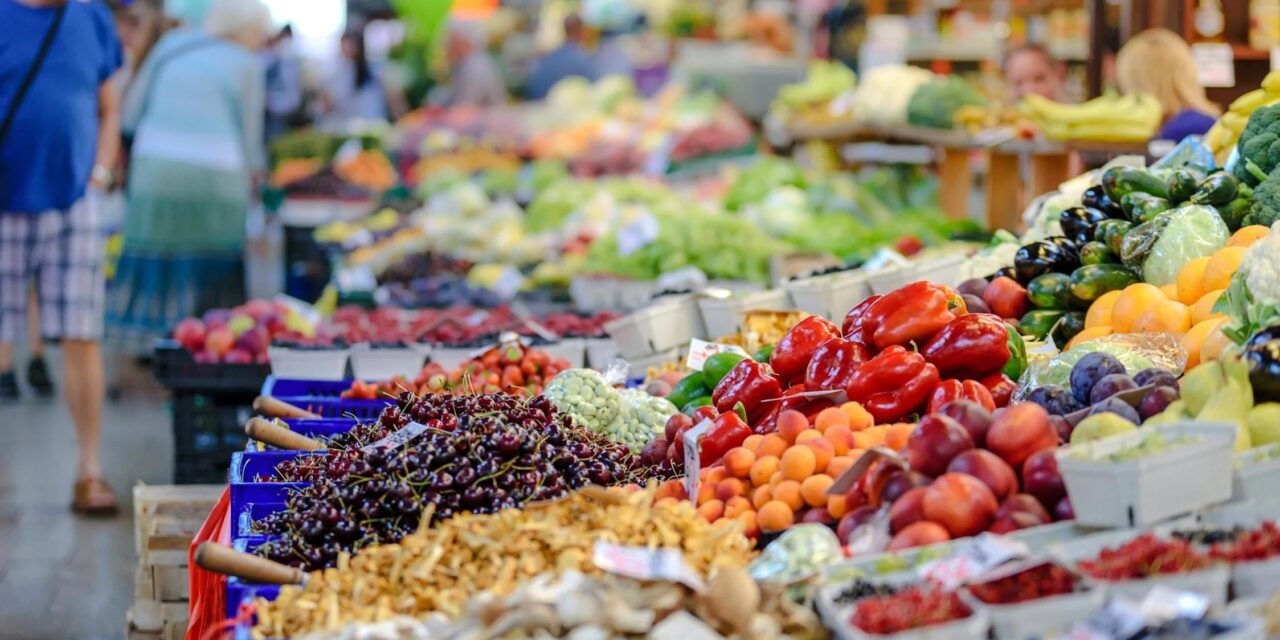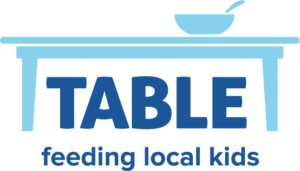TABLE has established a set of Good Food Values to guide us in making conscious and thoughtful choices about the food we purchase. These values reflect our commitment to people, health, and sustainability. One of TABLE’s three Good Food Values is to “prioritize small and mid-sized local farms for fresh food when possible.”
Over the past several years, we’ve established partnerships with many local community gardens and local farmers including Gabor Farms, Sankofa Farms, and Wildflower Lane Farm.
Why are local farm partnerships important to TABLE ?
Have you ever compared a locally grown spring strawberry to one sold in the grocery store? How about a vine-ripened summer tomato? Nothing tastes better than fresh fruits and vegetables grown locally. One of our goals at TABLE is to encourage kids to consistently eat more servings of fruits and vegetables each day. To help attain this goal, it’s important for kids to have positive associations with trying new foods, and introducing them to fresher, sweeter produce is one way to do it.
Some of the best ways to get the freshest produce is from farmer’s markets or to partner with a farm as part of a Community Supported Agriculture program. Unfortunately, for some local families, these options can be cost-prohibitive as many are working on tight budgets. TABLE’s partnerships with local farmers offer us the ability to provide children with locally grown food that is often harvested the same day we deliver it to their homes. Why is this important? Because produce contains the most nutrients just after it’s picked so the longer the time between farm to plate, the more nutrients are lost.
Besides the many health benefits linked to consuming a diet rich in fruits and vegetables, there are several other reasons we find it so important to work with and support our local farmers.
How many times do you find yourself choosing the same set of fruits and vegetables every time you go to the grocery store? By getting produce from a local farm, you have access to a variety of produce with a wider slate of nutrients. In fact, a study in 2002 among women showed that those who ate a greater variety of healthy foods actually lived longer than those who had less variety in their diets.
TABLE’s farm partners provide us with a wide range of produce introducing the kids we serve to different flavors and textures year-round. For example, in late winter, our farm partners provide varieties of greens such as turnip greens, mustard greens, kale, lettuce, collards, spinach, arugula, microgreens, and more. We also get root vegetables such as potatoes, onions, turnips, rainbow carrots, and watermelon radishes. Science tells us the more exposure kids have to different foods, the more likely they are to eat them as adults.
In addition to providing a variety of produce, local farms tend to be more environmentally friendly. Oftentimes the carbon footprint can be lower because of reduced time and travel between farm to plate. Local farms also often have more sustainable practices growing a variety of crops and using compost that allows them to limit chemical use. They also incorporate regenerative practices saving earthworms and reducing soil depletion which in turn makes the produce they grow more nutrient-rich and overall healthier for our kids.
Encouraging a sustainable food system
Creating community is at the heart of what TABLE does. We are proud to support small family farms and black farmers. Did you know a century ago, black farmers owned about 14% of agricultural land and now it’s only about 2% resulting in a land loss of $326 billion? By giving back to black farmers, we are helping to regrow their community and in turn, strengthen our community as a whole.
The money we spend on produce from local farms is more likely to remain in the local economy while also fostering entrepreneurship and small business development. The Triangle area is experiencing a lot of growth which has led to a loss of farmland. Supporting a local farm helps keep them in business while helping to create a sustainable food system.
Being a part of the local food system is an important part of TABLE’s programming and we are proud to be a bridge between local farms and local kids.

Jennifer Adams



